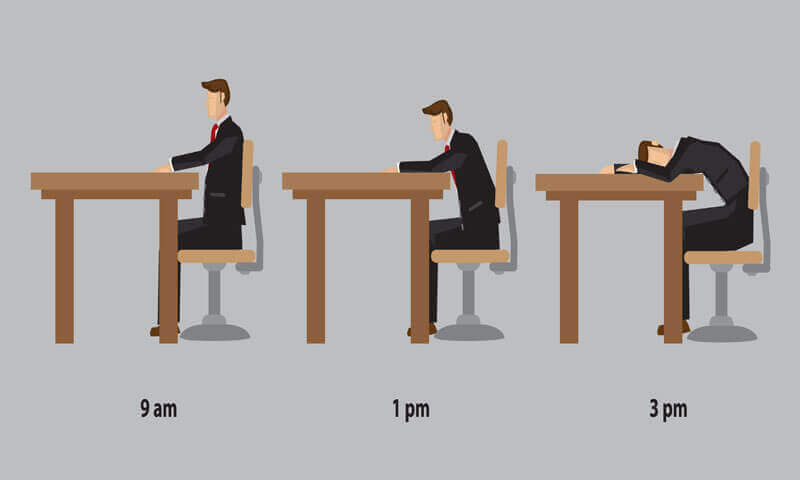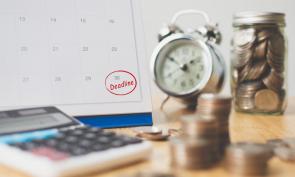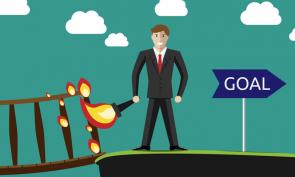
Question: Most days I'm alert and productive until lunch. In the afternoon, though, I have to drink so much coffee, my co-workers call me Shakes the Clown. Help!
Answer: Ah, the postprandial drowsiness syndrome. We know this one intimately. First, the good news: There's probably nothing wrong with you. Now the bad news: Periodic dips in alertness are written into our genes. All adults, even non lawyers, get them. For many of us, the most noticeable dips occur about six to eight hours after waking, then if we're lucky again at bedtime.
To understand what's going on, consider the opponent-process model of sleep and alertness pioneered at Stanford University's Sleep Disorders Center. For every two hours of consciousness, your body posts about an hour of sleep debt, says Stanford's Dr. William Dement, and as any law school loan officer will tell you, debts must be repaid. The longer you remain in arrears, the stronger the urge to sleep becomes.
To balance things, the body has its own internal Starbucks. Within the circadian alerting process, periodic waves of chemical stimulation are pushed into our systems. Instead of caffeine, our noggin-based coffee shops dope us with compounds designed to jazz us up and improve alertness. Experts have documented an initial surge of these chemicals upon awakening. Then they begin to wane around lunchtime, only to increase again in the later afternoon.






